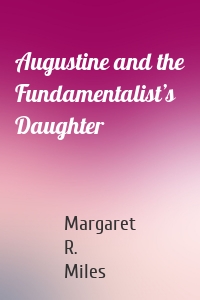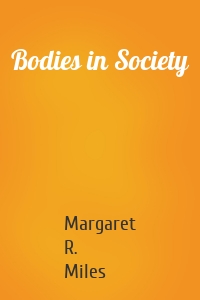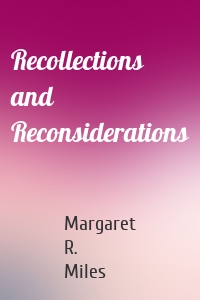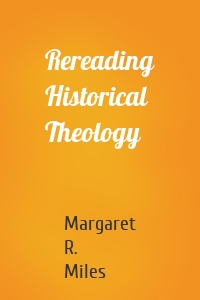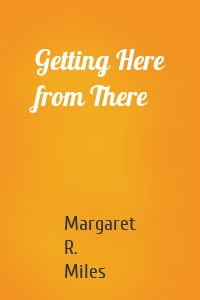Margaret R. Miles
9 кн.
Augustine and the Fundamentalist’s...
In Augustine and the Fundamentalist's Daughter, Margaret Miles weaves her memoirs together with reflections on Augustine's Confessions. Having read and reread Augustine's Confessions, in admiration as well as frustration, over the past thirty-five years, Miles brings her memories of childhood and youth in a fundamentalist home into conversation with Augustine's effort to understand his life. The result is a fascinating work of autobiographical and theological reflection....
| Автор | Margaret R. Miles |
Bodies in Society
Education is about learning to think. Much of what we call thinking, however, is a hodge-podge of repetitious self-talk, opinion, and cutting and pasting of second-hand ideas. Moreover, thinking in the present has often been alien to scholars who were tempted to think abstractly. But life and thought belong together and require each other, as Plotinus pointed out many centuries ago: «[T]he object of contemplation is living and life, and the two together are one» (Ennead 3.8.8). Presently, many...
| Автор | Margaret R. Miles |
Recollections and Reconsiderations
Several years before his death, Augustine of Hippo reviewed his published works, commenting on his purpose in writing each, and correcting, from his present perspective, the mistakes he noticed. Inspired by Augustine's Retractationes, Miles's Recollections and Reconsiderations undertakes a similar project, a critical review of almost fifty years of her publications. Rereading and rethinking in chronological order effectively bonds life and thought into a corpus, a body of work with...
| Автор | Margaret R. Miles |
The Wendell Cocktail
The Wendell Cocktail describes a major social problem, exemplified by the journals of a person with coexisting conditions–mental illness and addiction. Although there are resources for people with each of these conditions–psychiatry for mental illness and twelve-step programs for addiction–there are few effective resources for people with both. Since about half of the mentally ill medicate with an addiction, an increasingly large percentage of the American population is left without adequate...
| Автор | Margaret R. Miles |
Getting Here from There
This book of conversations between Margaret R. Miles and Hiroko Sakomura compares the experiences of two women who grew up in different societies, with different educations, different professions, and different religious orientations. Reflecting on the different ways in which Japanese and American societies inhibited and enabled them, these two women share their struggles, difficulties, and achievements. All of this is set in the context of one of the most radical social movements in the history...
| Автор | Margaret R. Miles |


